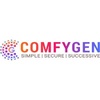The world is buzzing with the potential of blockchain development technology, and at the heart of this revolution lies the power of smart contracts. These self-executing agreements are transforming industries, from finance and supply chain to healthcare and governance. But where do you start if you want to wield this incredible power?
I’m here to tell you, building the future with smart contracts isn’t just for tech titans anymore. Whether you’re a seasoned developer or just dipping your toes in, this blog is your launchpad. I’ve spent years navigating the landscape of smart contract development, and I’m here to share the tools and languages that unlock your potential.
Forget the complex jargon and intimidating code. We’ll break down the essentials, from the most popular languages like Solidity to rising stars like Rust. You’ll discover frameworks that streamline development, editors that make coding a breeze, and testing tools that ensure your contracts are secure and bug-free.
But this isn’t just about technical specs. We’ll delve into the real-world applications of smart contract development services, exploring the industries they’re shaping and the problems they’re solving. You’ll see how these tools can empower individuals, disrupt entire ecosystems, and even change the way we interact with the world.
So, are you ready to join the smart contract development revolution? Buckle up, because this journey is not just about writing code, it’s about building a future where trust, transparency, and automation reign supreme. Let’s unlock the potential within you, and together, let’s build the future, one smart contract at a time.
Demystifying the Toolkit: Languages for Building Your Vision
The first step in your best smart contract development journey is choosing the right language. Here are some of the most popular options, each with its own strengths and characteristics:
Solidity: The undisputed king of the smart contract realm, Solidity is a high-level, object-oriented language specifically designed for the Ethereum Virtual Machine (EVM). Its syntax resembles JavaScript and C++, making it familiar to many developers. Solidity boasts a vast community, extensive documentation, and a plethora of tools and libraries available.
Vyper: Geared towards security and readability, Vyper is a Python-like language also targeting the EVM. Its focus on static typing and formal verification makes it ideal for projects where security is paramount. While the developer community is smaller compared to Solidity, Vyper’s robust features attract those prioritizing code clarity and safety.
Rust: This versatile systems programming language is increasingly gaining traction in the smart contract development realm. Rust’s focus on memory safety and performance makes it ideal for complex contracts and blockchain infrastructure development. While its learning curve may be steeper, the growing community and ecosystem make it a compelling option for experienced developers seeking high performance and security.
Other notable languages: Beyond these top contenders, languages like Yul (a low-level assembly language for EVM), Cairo (used for zk-SNARKs, a privacy-enhancing technology), and Michelson (the language behind the Tezos blockchain development) cater to specific needs and niche projects.
Frameworks: Streamlining Your Smart Contract Development Workflow
Frameworks like Truffle, Hardhat, and Brownie provide essential tools and libraries that streamline the smart contract development process. They offer features like:
- Compilation and deployment: Easily compile your code and deploy it to testnets or mainnets.
- Testing and debugging: Frameworks offer built-in testing tools and debuggers to ensure your contracts function as intended.
- Abstraction: They abstract away complexities of blockchain development interaction, allowing you to focus on the core logic of your contract.
Choosing the right framework depends on your preferences and project needs. Truffle boasts a mature ecosystem and extensive documentation, while Hardhat offers a more modular approach and active development. Brownie, a Python-based framework, caters to those comfortable with that language.
Editors: Where Code Meets Creativity
The right editor can make your smart contract development experience enjoyable and efficient. Popular options like Visual Studio Code (with the Solidity extension), Remix IDE (a web-based IDE), and Atom (with the Atom IDE-Ethereum package) offer features like:
- Syntax highlighting and code completion: These features aid in writing and understanding your code.
- Debugging tools: Step through your code and inspect variables to identify and fix issues.
- Integration with frameworks and tools: Seamlessly work with your chosen framework and other essential tools.
Consider factors like your preferred development environment, existing toolset, and comfort level with different interfaces when selecting an editor.
Testing and Security: Building Contracts You Can Trust
Rigorous testing and security are paramount in smart contract development. Even minor vulnerabilities can lead to catastrophic consequences. Here are some key aspects to consider:
- Unit testing: Test individual functions of your contract in isolation.
- Integration testing: Ensure different parts of your contract work together seamlessly.
- Security audits: Engage experienced security professionals to identify and address potential vulnerabilities.
Several tools and services cater to these needs. Frameworks like Truffle and Hardhat often include testing functionalities. Additionally, dedicated platforms like Mythril, OpenZeppelin Defender, and Tenderly provide advanced security audits and monitoring tools.
Beyond the Code: Exploring Real-World Applications
The possibilities unlocked by smart contract development are vast and continue to evolve. Here are some real-world applications across industries:
- Finance: Decentralized finance (DeFi) protocols leverage smart contracts to facilitate lending, borrowing, and other financial activities without intermediaries.
- Supply Chain: Track the movement of goods and ensure their authenticity through transparent, tamper-proof smart contracts.
- Healthcare: Manage patient data securely and securely automate

No comments yet